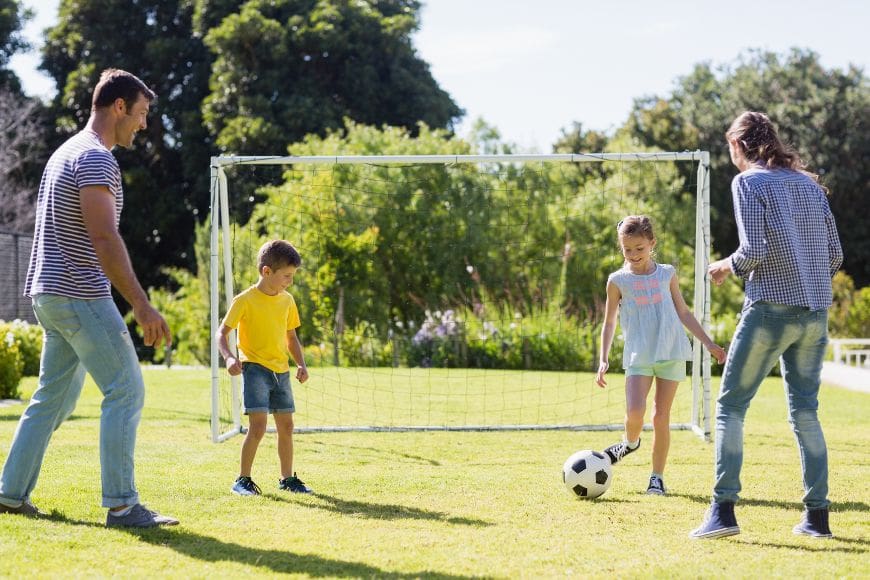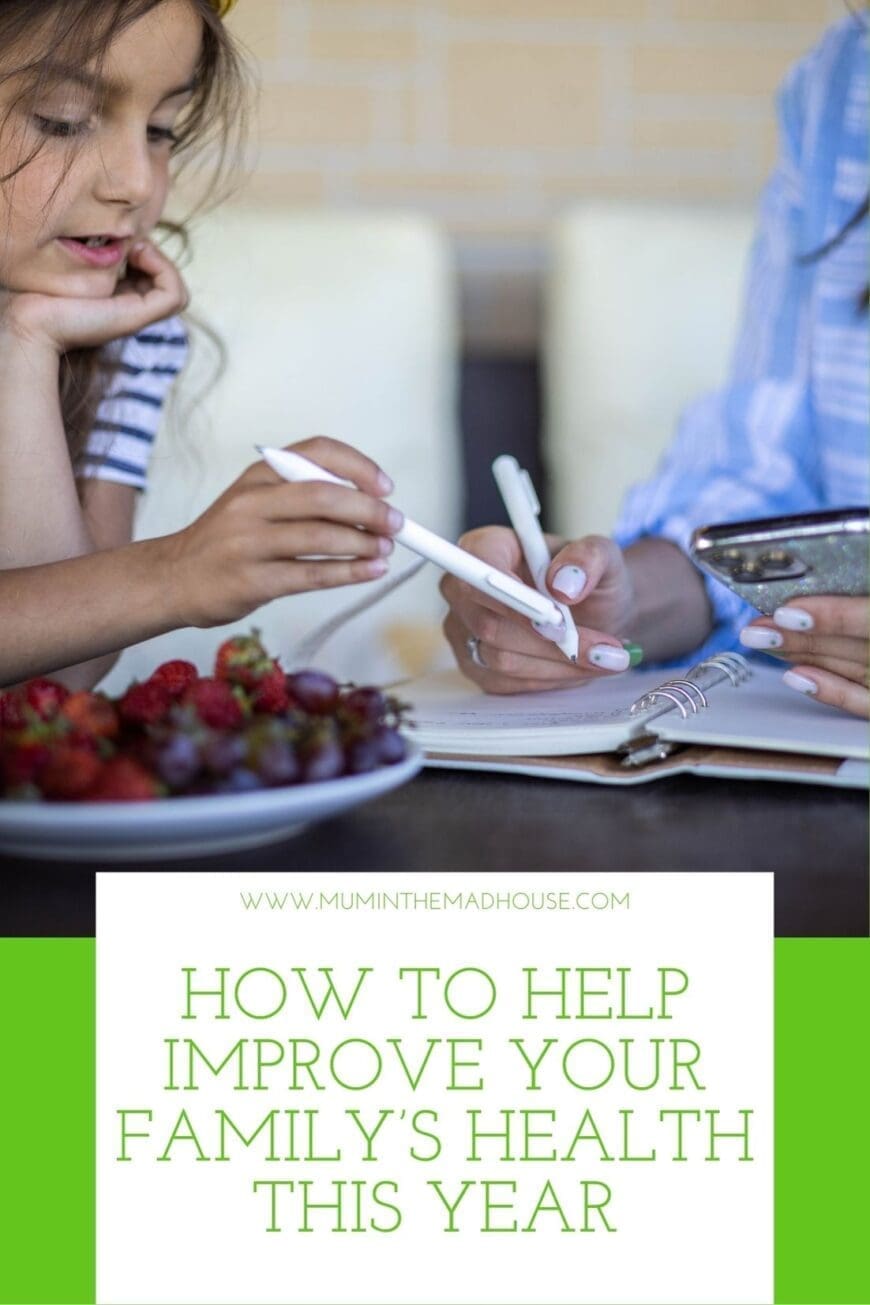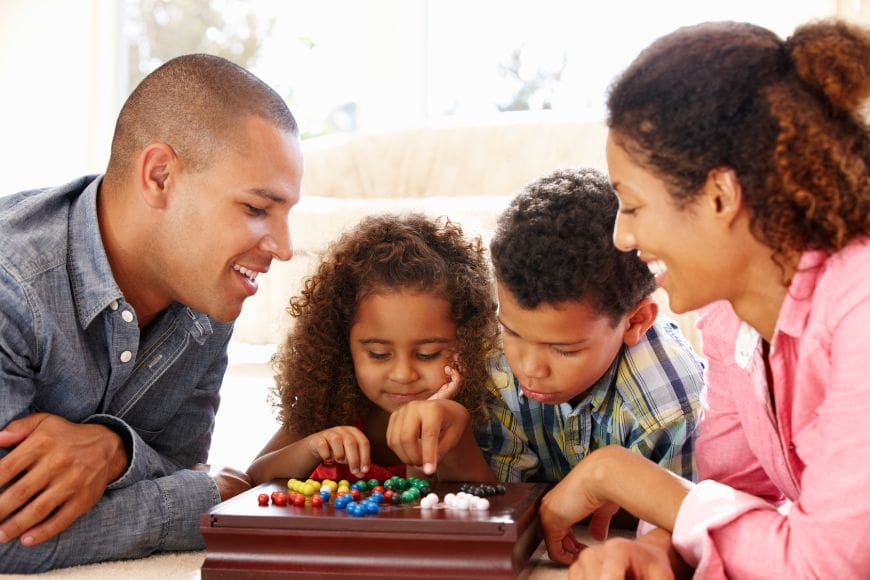In today’s busy world, making time for health and fitness as a family can be a challenge. However, setting a healthy example for your kids and making small lifestyle changes together can positively impact your entire family’s wellbeing. As parents, our physical and mental health shape the environment our children grow up in.

Fortunately, science has shown various effective yet straightforward ways families can work together to improve their overall health and fitness. So, if you’re looking for realistic, sustainable ways to help your family live a healthier lifestyle, continue reading. The following practical tips can guide you and your loved ones towards developing better habits as a team.

Lead by Example
One of the most influential ways to encourage healthy behaviours in your kids is to lead by example. Children are incredibly observant, so if they see you making smart choices for your health, they are more likely to follow. Make mindful eating, exercise, good sleep habits, and self-care a visible priority in your own life. For example, prepare nutritious family meals together, go on walks or bike rides after dinner, limit screen time before bed, and take time for your own wellness too.
Kids love getting involved in the kitchen, so find ways to make preparing healthy meals an engaging, educational activity the whole family can participate in. Let your children help chop veggies, make a salad, or read off recipe instructions. Turn good nutrition into quality bonding time that empowers kids to build culinary skills and positive associations with healthy eating. Your example will motivate them to continue making nutritious choices.

Make Exercise a Family Activity
Getting active as a family is a fun way to improve fitness and bring everyone closer together. Instead of forcing your kids to exercise, find activities the whole family enjoys. Go on weekend bike rides, swim at the community pool, or kick a soccer ball around the backyard.
Turn exercise into a rewarding bonding experience, not a chore. Let each child take turns picking a family activity for the weekend. Or have everyone write down their favourite active hobbies and choose from that list. Getting input from your kids makes them more likely to participate willingly and happily.
Also aim to integrate more movement into everyday tasks. Walk together to school, schedule active play time, or race up the stairs before dinner. Setting a friendly competition can make mundane activities more engaging. While the recommended amount of daily exercise might vary depending on your age, gender, and other factors, you should aim for at least one hundred and fifty minutes of moderate-intensity aerobic activity per week and two or more days of strength training exercises.

Promote Healthy Sleep Habits
Sleep is just as essential to health as diet and exercise but often overlooked. Not getting enough sleep can negatively impact weight, concentration, mood, and immunity for both adults and children. Help your kids develop healthy sleep habits by being a positive role model.
Set a regular bedtime routine you stick to, even on weekends. Power down screens at least one hour before bed and do calming activities like reading a book together. Keep bedrooms cool, dark and screen-free to optimise sleep quality.
Getting on a consistent sleep schedule yourself is just as vital, so aim for 7-9 hours per night. When parents practice good sleep hygiene, children are more likely to follow. Making sleep a family priority will boost everyone’s health, happiness and daily performance.

Cook Nutritious Meals Together
Cooking nutritious meals as a family teaches kids valuable skills while making nutrition fun and interactive. Get children involved in meal prep, let them help stir, measure, and add ingredients. Teach them about healthy foods and getting a balanced mix of veggies, proteins and grains in their diet.
Make it a weekly routine to meal plan together. Let kids cut out magazine photos of healthy foods they want to eat that week. Then help them use the pictures to plan balanced family meals and make a grocery list. Getting kids invested in the planning process gets them excited to cook and try new healthy foods.
Focus on adding more nutritious options like whole grains, fruits, veggies and lean proteins rather than restricting less healthy foods. Create balanced plates with reasonable portions and variety. Avoid labelling foods as “good” or “bad,” which can develop unhealthy relationships with food. The key is making healthy eating an enjoyable, stress-free family experience.
Prioritise Family Bonding
With busy schedules, it’s important to carve out quality time for family bonding, which is vital for mental health and forming positive relationships. Make family activities a regular part of your routine. Play board games, go to the park, visit a nature trail or learn a new hobby together.
Shared experiences build stronger family connections, reduce stress and teach children important social skills. Set a regular family night like Friday game night or Saturday morning park adventures. Give each child a turn picking the activity so everyone feels involved. Unplug from devices and truly engage with each other.
Proactively spending quality time together establishes lifelong positive associations with family interaction. Strong family bonds will motivate your kids to make smart choices as they grow older. By living a healthy lifestyle together, you set the foundation for your children’s future health and happiness.

Make Healthy Changes Step-by-Step
When trying to improve your family’s health and fitness, focus on consistency over perfection. Making too many changes at once can feel overwhelming and set unrealistic expectations. Instead, work on one goal per week, like eating more veggies, limiting sugary drinks or taking a daily walk together.
Celebrate small successes along the way. After a month of regular walks, have a dance party. Or let each child decorate a Mason jar to collect stickers for each nutritious meal. Rewarding progress keeps motivation high.
For you personally, you could look into various weight loss treatments to get a helping hand. You can do this in person or arrange a virtual assessment using online pharmacies such as the Independent Pharmacy. Consider visiting their website to learn more about alternative weight loss treatment, arrange an assessment, read customer testimonials, etc. and see how their weight loss tablets could help you reach your goal weight today
Remember, it’s not about being perfect. It’s about forming sustainable healthy habits together one step at a time. Making even small consistent changes as a family can lead to significant improvements in your collective wellbeing.
Consult Your Paediatrician
As you work to improve your family’s nutrition, activity levels and overall health, collaborate with your child’s doctor. Paediatricians can provide personalised medical advice, answer questions, recommend age-appropriate goal setting and monitor your child’s unique health needs.
Schedule an annual checkup to discuss diet, sleep, exercise, lifestyle factors and any areas of concern. Voice challenges you face as a family so your paediatrician can help with practical solutions tailored for your situation. They can also refer you to registered dietitians, fitness trainers, counsellors and other specialists if needed.
With your paediatrician’s guidance supporting the lifestyle changes you implement at home, your family can build healthy habits customised to your needs and create positive impacts that last a lifetime.

Building a Foundation of Health
By teaching your kids positive lifestyle habits from an early age, you provide them with the tools they need to make smart choices and prioritise wellness as adults. The lessons they learn about nutrition, physical activity, sleep and family bonding form the foundation of their health for years to come.
No matter how old your kids are, working together to make healthy improvements benefits the whole family. Attitudes and behaviours are still developing into the teenage years, so don’t wait – start making positive changes today.
